Physical Address
304 North Cardinal St.
Dorchester Center, MA 02124
Physical Address
304 North Cardinal St.
Dorchester Center, MA 02124

Every few months I tell myself I should start documenting my life. Then I open a blank page, stare at it for a dramatic fifteen minutes, and decide to reorganize my apps instead. Because clearly, color coding folders is how one preserves memories.
But lately, something shifted. I caught myself scrolling through old photos and realizing I don’t actually remember being there. I remember the photo, not the moment. Somewhere between the noise, the notifications, and the survival mode of adulthood, the small stuff started slipping through the cracks. Maybe that’s why it feels like time to start documenting life again. Or at least, to stop letting it blur.
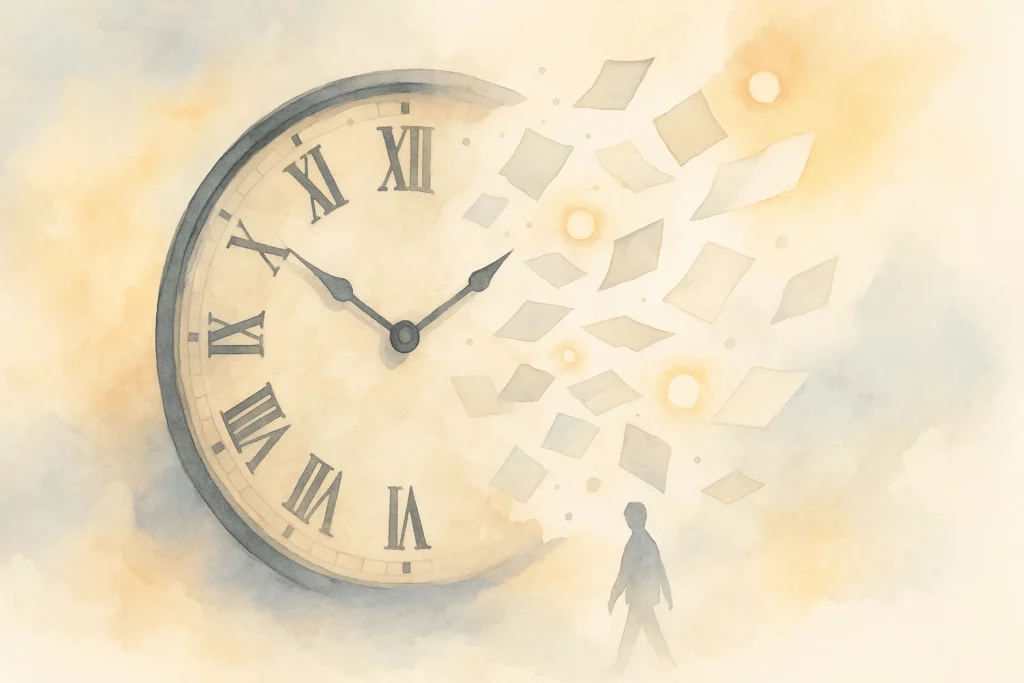
There’s something unsettling about realizing that entire months have turned into a vague soup of “work, laundry, sleep, repeat.” Maybe you feel it too. One day you’re complaining about winter and suddenly it’s July and you have no idea what happened in between.
Documenting your life isn’t about being sentimental or crafting a perfect narrative. It’s more like leaving breadcrumbs for your future self. Tiny markers that whisper, Hey, you were here. You existed. You felt things.
The world has trained us to collect achievements, not memories. Yet years from now, you probably won’t care how many unread emails you conquered. You’ll care about the weird late night conversations, the burnt pancakes, the moments that never made it to Instagram because your hair looked tragic.
So maybe now feels right because time is getting slippery, and we finally realize that memory isn’t reliable enough to carry it all for us.
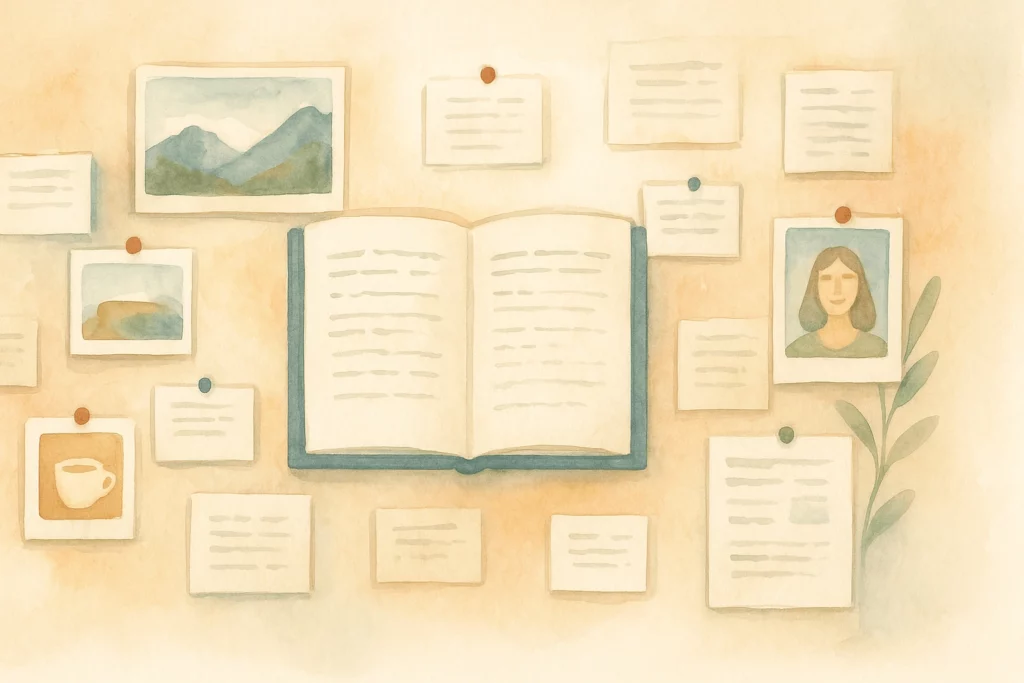
Let’s clear something up right away. “Documenting your life” doesn’t mean you have to buy pastel stationery and start drawing mood trackers. Unless that’s your thing, then draw away.
The truth is, documentation can look like a lot of things.
• A few chaotic voice notes recorded in your car while stuck in traffic.
• Screenshots of text messages that made you laugh so hard you snorted coffee.
• A scrappy folder of photos no one else ever sees.
• Random journal entries that sound like you’re writing to an imaginary therapist.
• A digital note called “today was weird but okay.”
The goal isn’t to make your life look curated. It’s to make it look real. The ordinary days deserve a place too. The half finished thoughts, the coffee spills, the crying in the shower moments, that’s all part of the human mess.
Think of it like anthropological fieldwork, except the subject is you.
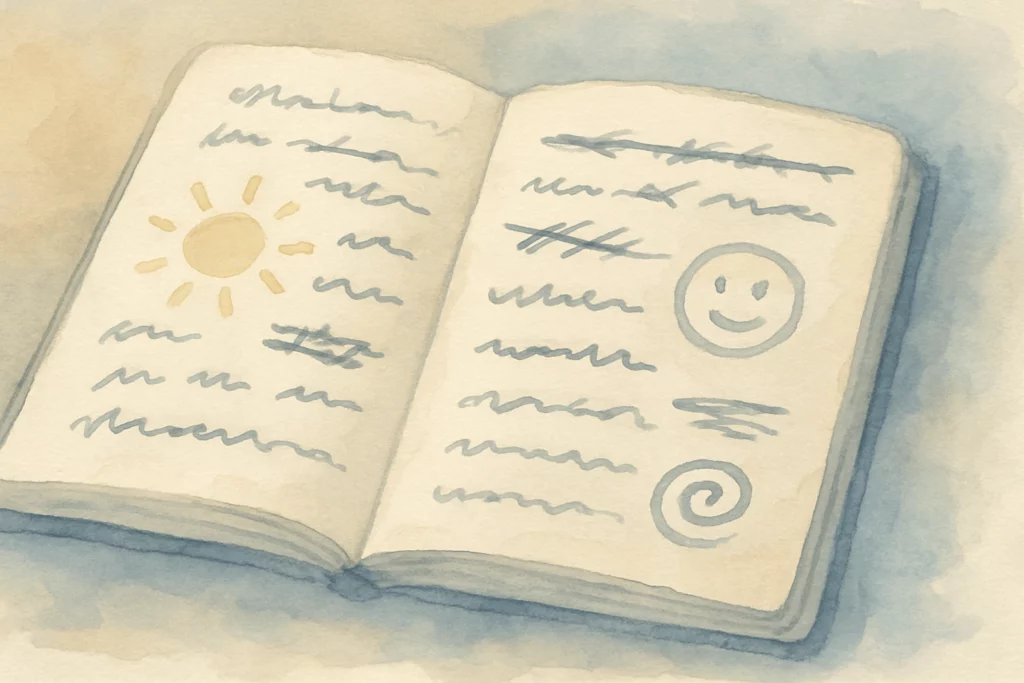
Here’s a wild idea. Maybe you’re not supposed to be good at documenting your life. Maybe it’s meant to be inconsistent, blurry, and slightly embarrassing.
People treat journaling or memory keeping like an art project that needs rules and structure. But real documentation looks more like, “I forgot to write for three weeks, then wrote three pages about a sandwich.” That’s fine. In fact, it’s perfect.
Because documenting isn’t about performing for future readers. It’s about noticing what mattered then, even if it makes no sense now.
Imagine your life as a museum exhibit curated by someone with mild ADHD. That’s what your documentation should feel like. Messy, honest, and accidentally beautiful.
Perfection kills momentum. If you think every entry has to sound profound, you’ll never start. So yes, go ahead and document your life badly. The bad version is infinitely better than the non existent one.
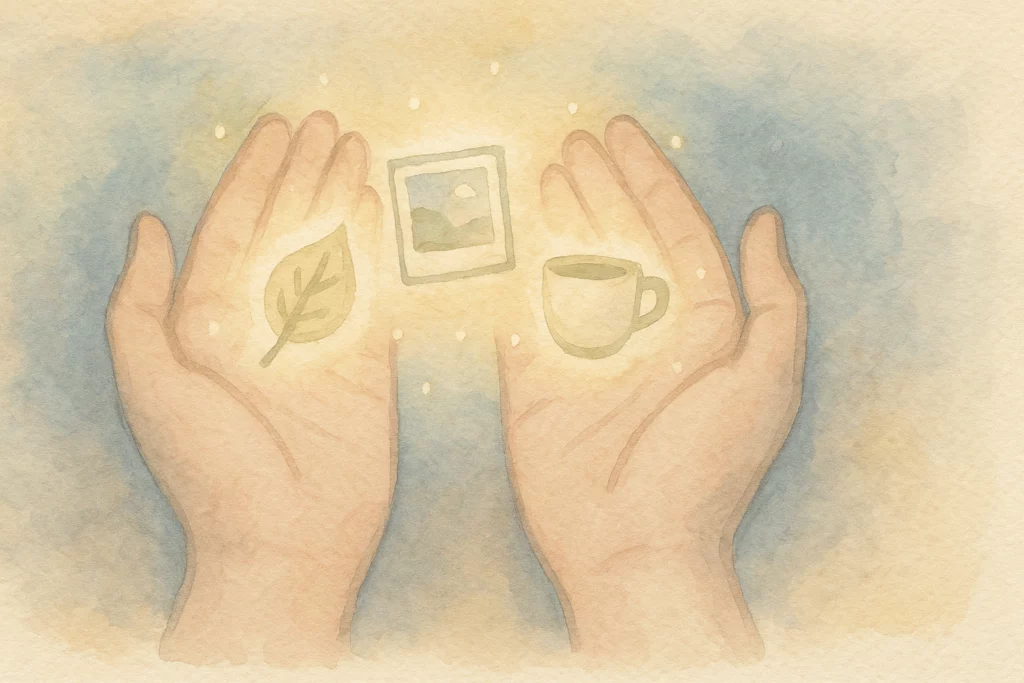
When we’re younger, we think big milestones define us, graduations, weddings, promotions. But the older I get, the more I realize it’s the small, weirdly specific stuff that sticks.
The way your favorite mug sounds when you set it on the counter. The exact smell of rain mixed with coffee and exhaustion. The ridiculous playlist that got you through a heartbreak.
Those little details become emotional timestamps. You might forget the year something happened, but you’ll remember how it felt.
Documenting these tiny fragments is a quiet rebellion against forgetting. You’re telling time, “No, you don’t get to erase this.”
If you ever want to see proof that small things matter, read an old journal entry about a random Tuesday. You’ll notice the tone, the rhythm, the texture of your life back then. It’s not nostalgia, it’s data. Emotional data, but still data.
And in an era obsessed with tracking steps, calories, and screen time, it’s refreshing to track something that actually matters.
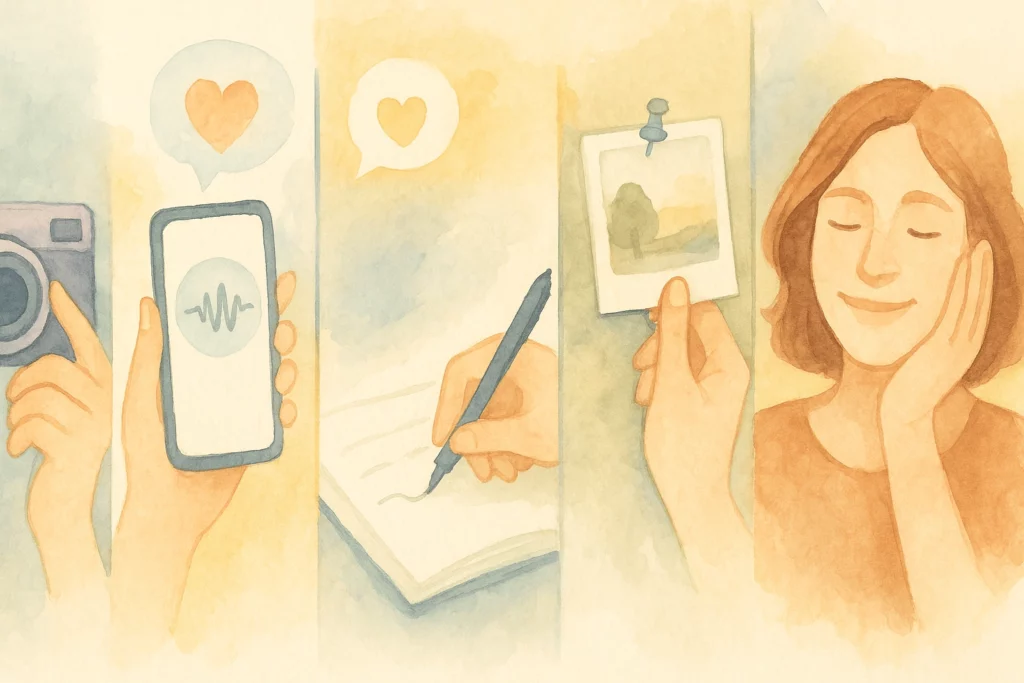
Now for the part where your brain screams, “Okay but how?” Don’t worry, this isn’t a productivity course. You don’t need a system, a color scheme, or a brand of pen blessed by the journaling gods.
Try one of these low effort ways to begin.
You don’t need to post it. You don’t need validation. The point is to build a trail of small, real moments.
If you want to add some structure later, great. If not, even better. Let it stay messy. That’s how life actually feels.
If you want some inspiration on learning and growing later in life, check out learning after 40. It’s a reminder that growth doesn’t have an expiration date, and neither does starting something new.
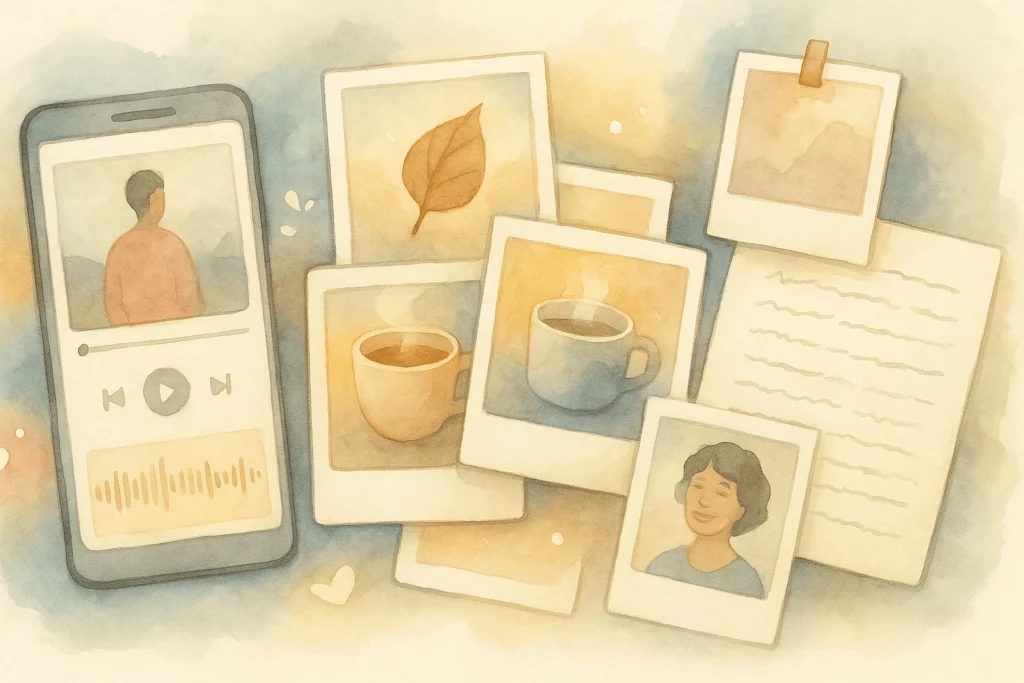
For me, it starts with simplicity. I plan to use the Notes app because it’s the only app I can’t accidentally delete during a midnight decluttering spree.
Every day (or whenever I remember), I’ll write one thing, a thought, a quote, a weird dream, a photo of my coffee mug. No rules, no guilt. If I miss a day, life goes on.
I’ll also start saving more screenshots of conversations that make me laugh or think. Future me will probably need those. Maybe I’ll even record short voice notes when something feels too heavy or too real to type.
The beauty of documenting life is that it turns the ordinary into something sacred. Even if no one ever sees it, you’ve caught a moment before it disappeared. That’s the quiet power in it.
If you’re into digital organization, my second brain setup might help you create your own space for memories, ideas, and reflections without overcomplicating the process.
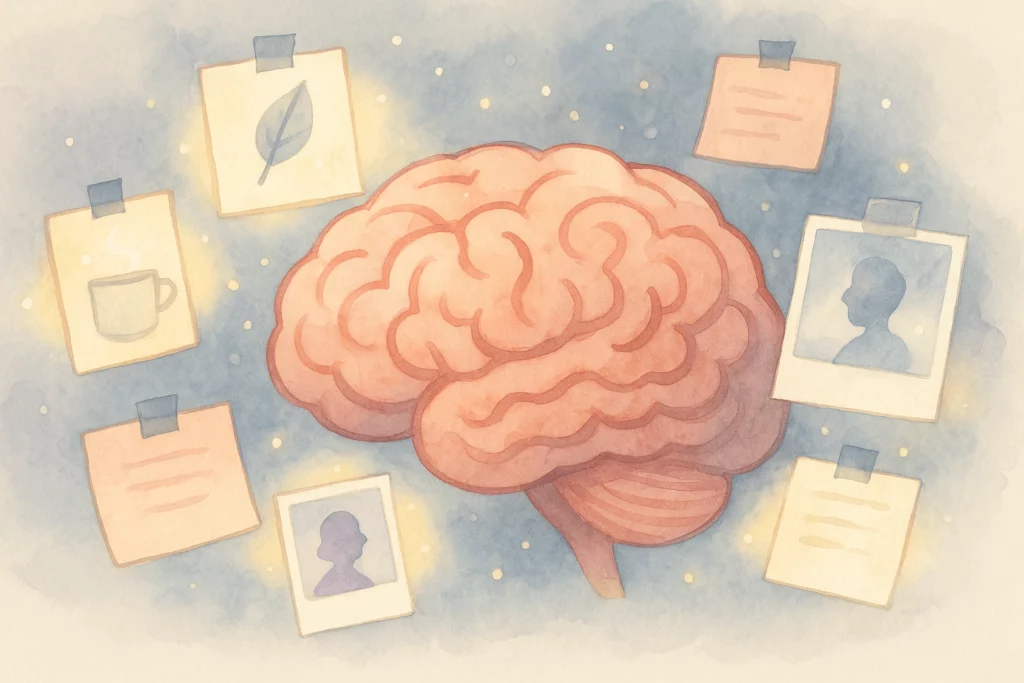
Honestly, part of this is about control. The world moves too fast and keeping track of my own story feels like a small act of resistance.
But it’s also about connection. When I look back at old notes or photos, I see versions of myself I’ve forgotten, anxious, hopeful, lost, trying again. It’s comforting to realize I’ve survived every version so far.
Memory is sneaky. It edits out context and emotion. Documentation, however clumsy, gives you something to hold. It’s proof you were real in that moment, even if it doesn’t feel like it now.
Also, let’s be honest. The brain is unreliable. Half the time I walk into a room and forget why I’m there. I’m not trusting it with my life’s narrative. That’s partly why I wrote about recovering cognitive function, because sometimes, our brains need a little backup system.
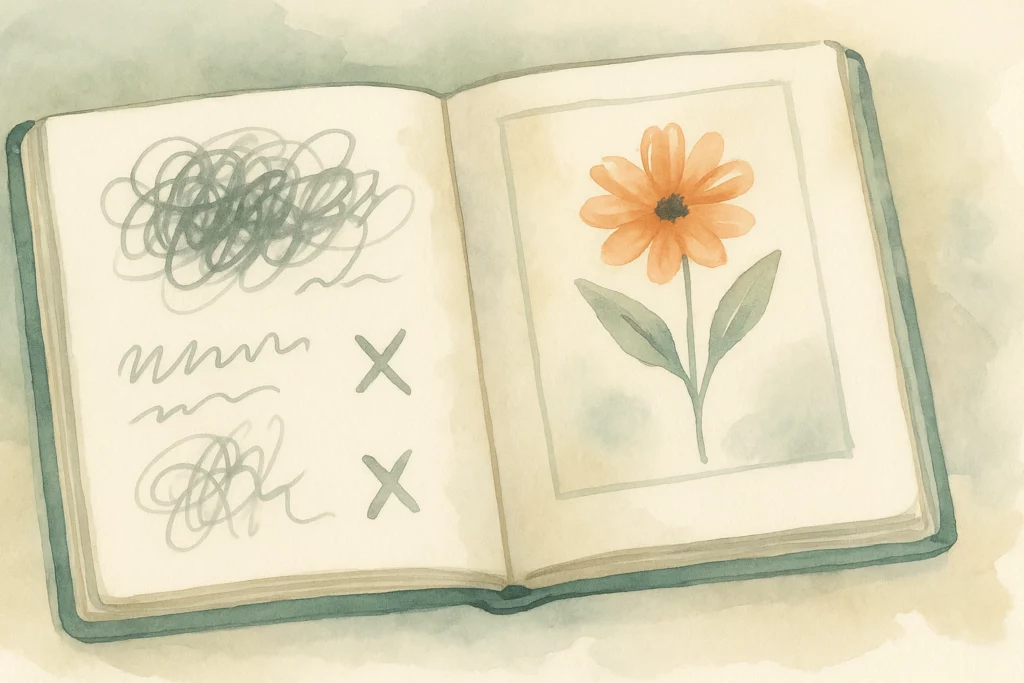
Dear perfectionist brain, this is not your time to shine.
You don’t need a theme, a matching font, or the perfect lighting. You don’t need to turn your memories into content.
This isn’t a productivity challenge or a way to optimize your identity. It’s just you trying to remember what it feels like to be alive.
So if you write something messy, keep it. If you take an unflattering photo, save it. If your voice note sounds awkward, that’s fine. You’re not auditioning for your own documentary.
Perfection doesn’t make memories last longer. Authenticity does. The best things I’ve ever written started as a disaster and ended as something true.
So sit down, inner critic. You’ve had your fun.
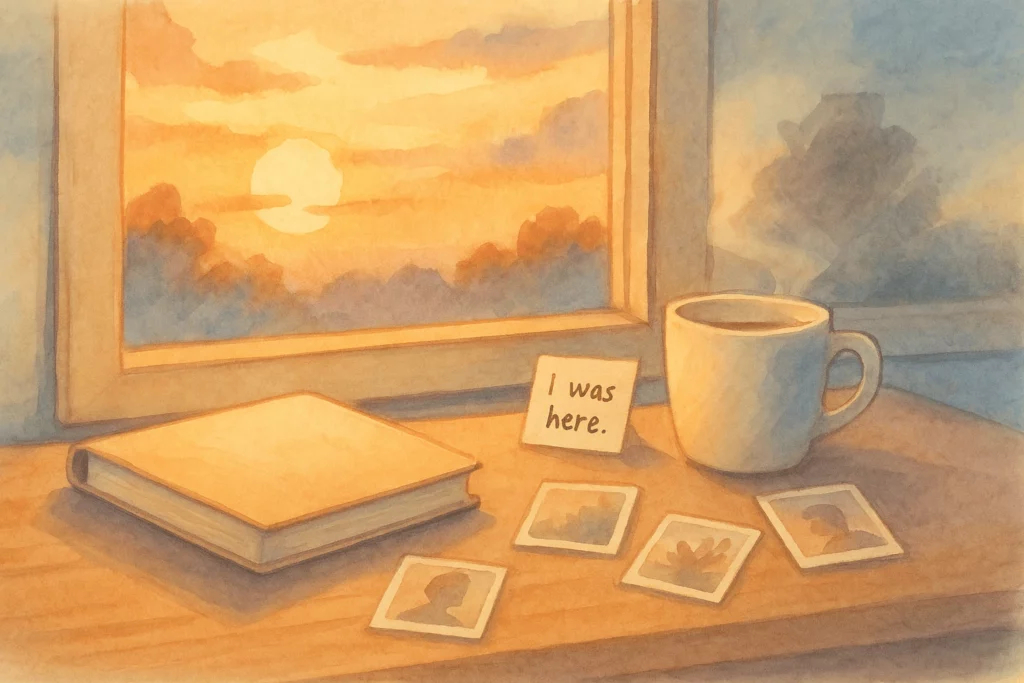
Here’s what I’ve learned while thinking way too much about documenting life. It’s less about nostalgia and more about awareness.
When you start noticing your own life enough to record it, you also start living it more intentionally. You pay attention. You slow down just enough to realize you’re in the middle of something that will matter later.
And maybe that’s the entire point.
You don’t have to write daily essays or take cinematic photos. Just start collecting proof that you were here, one line, one photo, one small fragment at a time.
Because someday, your future self will look back and say, “That was me. I made it through that day. I lived that version of my life.”
So here’s your sign. Start documenting. Badly. Imperfectly. Reluctantly. But start.
Let the memory hoarding begin.
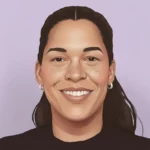
I’m a mental health nurse, part-time student, and full-time overthinker fueled by coffee and music. This blog began somewhere between a night shift and a creative crisis. It's a small space for thoughts about life, learning, and everything in between.